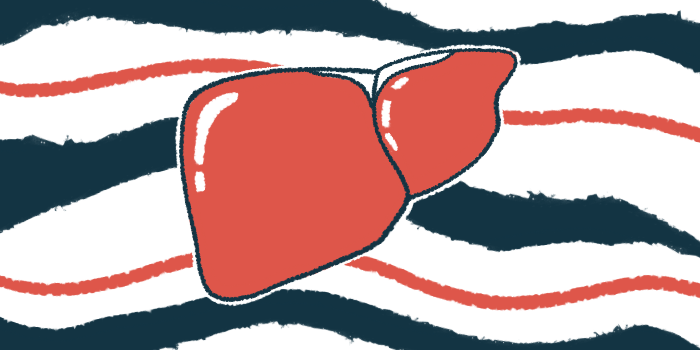Sleep disorders common in PBC, linked to severe disease: Study
About half of PBC patients have sleep difficulties, researchers say
Written by |

Sleep disorders affect about half of adults with primary biliary cholangitis (PBC), and are associated with more severe disease and worse outcomes, according to a study in China.
PBC patients with poor response to treatment and severe liver damage were more likely to develop sleep problems and more chaotic sleep patterns than those showing good response to treatment and with limited liver symptoms, the study found.
“A bidirectional relationship may exist between sleep and autoimmunity, where active disease likely contributes to sleep disturbances, and sleep impairment, in turn, may lead to immune dysregulation and a breakdown of immunological tolerance [toward the body’s own healthy tissues],” the researchers wrote.
The study results show “it is essential to incorporate the assessment of sleep disorder into the clinical management of patients with PBC, and timely intervention would be beneficial,” the researchers wrote.
The study, “Associations between sleep disorders and clinical outcomes of patients with primary biliary cholangitis,” was published in Advances in Medical Sciences.
Sleep quality and severe disease
Cholangitis refers to inflammation of the bile ducts, the tubes that carry bile — a fluid produced by the liver to help break certain fats and proteins during digestion — from the liver to the intestines.
PBC is a chronic, autoimmune form of cholangitis that occurs when the immune system attacks healthy cells in or around bile ducts. This causes bile to accumulate to toxic levels in the liver, damaging the organ. Ultimately, the disease can lead to cirrhosis, or irreversible liver scarring, and liver failure.
Common symptoms include fatigue, itching, and sleep disorders that may interfere with a person’s ability to perform daily tasks.
There is limited data on the frequency of sleep disorders in people with PBC, and “few studies have explored the relationship between sleep quality and disease severity or examined the impact of sleep disorders on clinical outcomes,” the researchers wrote.
The team, from Tianjin Medical University, retrospectively analyzed data from 177 PBC patients (91% women, mean age 60) and 165 age- and sex-matched healthy people.
Participants were recruited between January 2012 and August 2021. All were on ursodeoxycholic acid (UDCA), PBC’s first-line of therapy, and had accurate medical records for at least one year.
Poor therapeutic response was defined as no decrease in three known liver disease markers: the liver enzymes aspartate aminotransferase (AST) and alkaline phosphatase (AP), and bilirubin, a molecule processed by the liver.
Sleep quality parameters were assessed in the previous month using the Pittsburgh Sleep Quality Index (PSQI), a self-reported score in which higher values indicate worse sleep quality. A score above 7 was considered indicative of sleep disorders.
PBC patients had overall worse sleep quality compared with healthy controls, with a significantly higher median total PSQI score (8 vs. 2) and a significantly higher frequency of sleep disorders (50.8% vs. 18.2%).
The PBC group also had significantly higher blood levels of liver enzymes and bilirubin, as well as significantly lower blood albumin levels; all signs of liver damage.
PBC patients with sleep disorders had significantly higher blood levels of bilirubin and certain liver enzymes, indicating more severe disease, and of immunoglobulin M (IgM) — a class of antibodies associated with autoimmune conditions — than patients without sleep problems.
Patients with sleep disorders were also more than twice as likely to have poor therapeutic response (45.6% vs. 20.7%) and cirrhosis (40% vs. 11.5%).
Finding associations
Additional statistical analysis indicated that higher levels of bilirubin and certain liver enzymes (AST, AP, and gamma-glutamyl transpeptidase) were significantly associated with a higher PSQI score, or worse sleep quality. In turn, higher levels of albumin were significantly associated with better sleep quality.
PBC patients with poor therapeutic response to UDCA were significantly more likely to have sleep disorders relative to those with good treatment response (69.5% vs. 41.5%). Likewise, sleep disorders were significantly more common among patients with cirrhosis than in those without cirrhosis (78.3% vs. 41.2%).
Patients showing poor therapeutic response and those with cirrhosis also had significantly higher total PSQI scores and significantly higher scores in several PSQI subscales, including subjective sleep quality, sleep latency, habitual sleep efficiency, sleep disturbance, and daytime dysfunction. This indicated worse sleep quality and more disturbed sleep patterns for these groups of patients.
There were significant associations between higher levels of certain liver damage markers and higher total PSQI scores, or worse sleep quality, among patients with and without cirrhosis.
These associations were stronger in those with cirrhosis, indicating that “it is necessary to re-evaluate the clinical stage while patients with PBC experience more severe sleep disturbances and provide timely intervention,” the researchers wrote.
The findings show that “sleep disorders are common and associated with clinical outcomes in patients with PBC,” the team wrote. “It is important to include the overall assessment of sleep disorders in clinical practice to identify patients with inadequate therapeutic response and liver cirrhosis earlier, which contributes to timely intervention to improve clinical outcomes,” the researchers wrote.








